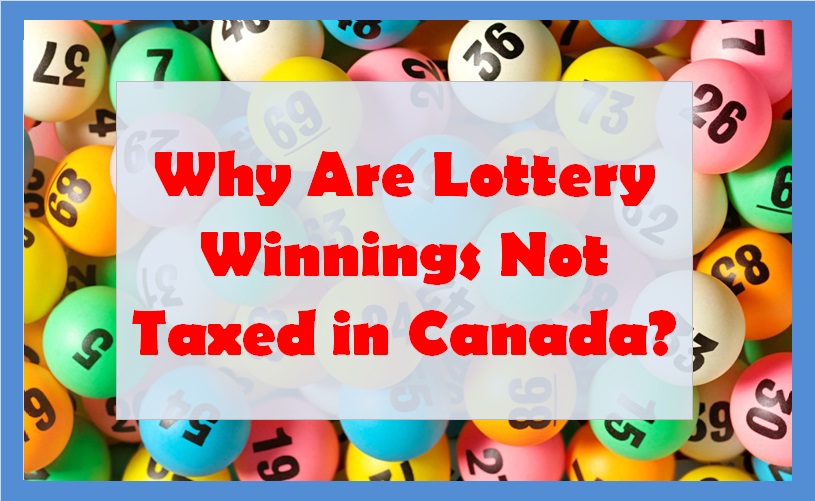Contents
Why Are Lottery Winnings Not Taxed in Canada?
Lotteries have long captured the imagination of people, offering them a chance to turn their dreams into reality overnight. In Canada, one unique aspect that often surprises many is the fact that lottery winnings are not taxed. Unlike some other countries, where lottery prizes can be subject to hefty tax deductions, Canada stands out by allowing winners to keep the entirety of their windfall. This article delves into the intriguing reasons behind why lottery winnings are not taxed in Canada.
Lotteries have become a cultural phenomenon, tempting individuals with the allure of a life transformed by sudden wealth. In Canada, lucky winners experience an additional perk – they get to keep the full amount of their winnings, untaxed. This practice is rooted in several key factors that contribute to Canada’s approach towards taxing lottery prizes.
The Historical Context
The tax-free nature of Canadian lottery winnings can be traced back to historical decisions that were made to encourage participation and fund public services. In the early days of lotteries, they were often used to generate funds for specific projects, such as building bridges or funding educational institutions. Taxing these winnings would have discouraged ticket sales and hindered the accomplishment of these objectives.
Government Funding and Lottery Revenue
In Canada, various government programs and services are funded through lottery revenue. The revenue generated from ticket sales already contributes significantly to these initiatives. Taxing lottery winnings could potentially offset this revenue by discouraging ticket purchases, thus undermining the very purpose of lotteries as a funding mechanism.
Progressive Tax System
Canada’s progressive tax system means that individuals with higher incomes already pay a larger share of taxes. Taxing lottery winnings would be redundant in this context, as it would disproportionately affect those who are already contributing more to the tax pool. The decision to not tax lottery prizes is, in part, a reflection of the country’s commitment to maintaining a fair and balanced tax system.
Public Perception and Participation
Taxing lottery winnings could lead to negative public perception and reduced participation. The excitement of winning a substantial amount could be dampened if a significant portion were to be taken away as taxes. This could ultimately lead to lower ticket sales and, consequently, lower revenue for the projects and programs supported by lottery funds.
Economic Stimulus and Spending
Tax-free lottery winnings can also serve as an economic stimulus. Winners often spend their windfalls on various goods and services, boosting local businesses and the economy as a whole. Taxing these winnings might deter winners from spending as freely, potentially limiting the economic benefits generated by their newfound wealth.
In conclusion, Canada’s policy of not taxing lottery winnings can be attributed to a combination of historical decisions, funding considerations, and maintaining a fair tax system. This approach ensures that the allure and excitement of winning remain intact, while also contributing to public programs and economic growth. As with any tax-related matters, it’s advisable to consult with financial professionals for the most up-to-date and accurate information.
Summary Table: Reasons for Tax-Free Lottery Winnings in Canada
| Reason | Explanation |
|---|---|
| Historical Context | Early lotteries were created to fund specific projects, and taxing winnings would have hindered their goals. |
| Government Funding and Revenue | Lottery revenue already supports government programs; taxing winnings might reduce this funding source. |
| Progressive Tax System | Canada’s progressive taxation already ensures higher earners contribute proportionally more in taxes. |
| Public Perception and Participation | Taxing winnings could lead to negative public perception and decreased participation, affecting revenue. |
| Economic Stimulus and Spending | Tax-free winnings encourage winners to spend, boosting local businesses and the economy as a whole. |
FAQs: Why Are Lottery Winnings Not Taxed in Canada?
1. Are lottery winnings really tax-free in Canada? Yes, in Canada, lottery winnings are not subject to income tax.
2. Are there any exceptions to this rule? No, all types of lottery winnings, whether from national or provincial lotteries, are not taxed.
3. How do other countries tax lottery winnings? Many countries tax lottery winnings as part of the recipient’s overall income.
4. Do winners need to report their winnings to the tax authorities? While the winnings themselves aren’t taxed, they do need to be reported to the tax authorities for record-keeping purposes.
5. Is there a limit to the amount that can be won tax-free? No, there is no upper limit to the amount of lottery winnings that can be received tax-free in Canada.
6. Could this tax-free policy change in the future? It’s possible, as tax policies can be subject to revisions, but any changes would likely take into account the reasons mentioned in this article.
7. Do winners still receive the full advertised jackpot amount? Yes, winners receive the full amount of the advertised jackpot without any tax deductions.
8. Are there any provinces that tax lottery winnings? No, the tax-free policy applies uniformly across all provinces and territories in Canada.
9. What about other gambling winnings, like casino jackpots? Other gambling winnings, such as casino jackpots, are also not taxed in Canada.
10. How does this tax-free policy benefit the government? While the winnings themselves remain tax-free, the revenue generated from ticket sales contributes to government funding.

